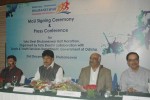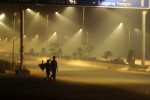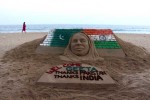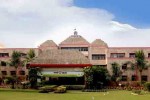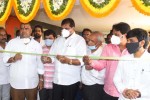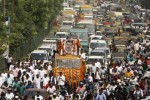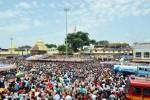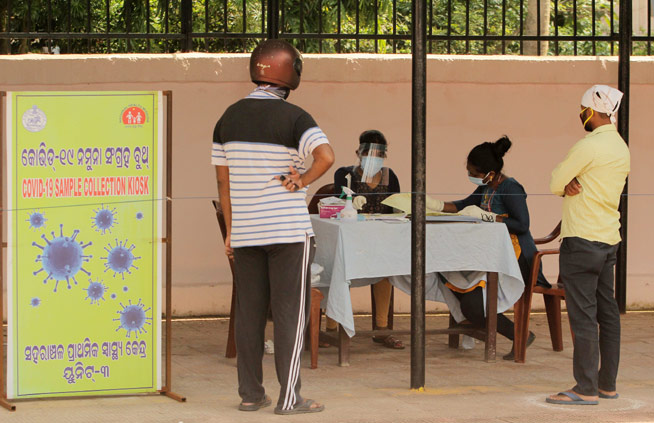
Priya Ranjan Sahu
India’s fight against novel coronavirus disease (COVID-19) has reached a critical stage. The country’s novel coronavirus (SARS-CoV-2) infection tally has crossed 48 lakh while over 79,000 people have lost their lives to COVID-19 across the country.
Odisha, which managed the fight against the pandemic quite well in the initial months, witnesses alarming rise in the number of COVID-19 positive people. As of Sunday, positive cases have surged past 1.50 lakh while COVID-19 and death toll is within 700 persons. The death toll might seem less as compared to other bigger states of India, but the trajectory is stiffly upward.
Khurda district, of which the state’s capital and biggest city Bhubaneswar is a part, has maximum number of 25,996 positive cases. It is followed by Ganjam with 19,211 and Cuttack with 13,015. Besides, another 12 districts have positive cases between 3,000 and 6,000. At least 34,849 persons are in hospital isolation in the state.
However, disturbing reports are coming from across the state. Even as the number of positive cases is increasing by the day, there seem to be a shortage of beds for critical patients at hospitals. Families are taking serious patients from one COVID-19 hospital to another as they are brimming with full capacity. There have been few reports of patients dying while waiting for the ambulances or while being taken to hospital in ambulances. What has made the matter worse is the fact that many doctors, other medical staff, frontline workers and policemen have been infected with the virus.
Families of patients complain of poor infrastructure in government COVID-19 facilities and rush to private hospitals for treatment. However, they allege, they are being charged through their noses. According to many patients who recovered and the families of patients who died, some private hospitals are charging exorbitantly in blatant disregard for the cap on maximum fees set by the government.
As per the government’s guidelines, charges cannot exceed Rs.15,000 per day in case of ICU admission. But patients allege that some hospitals charged around Rs. 50,000 for the same facility. Some patients claim to have coughed up over Rs. 20 lakh for their treatment in private COVID-19 facilities. This is sheer loot of hapless COVID-19 victims during distressing times. The government must look into the matter seriously and take appropriate action.
Such pathetic scenario, however, is not confined to Odisha; it is far worse in several other states.
Why are people being taken for a ride during such a distressing time? This is because the media – a vital link between the government and people – seem to have stopped talking about the plight of common people.
Even at a time when the number of positive case has reached around a lakh and death over a thousand per day in the country, the TV channels spoon-feed us with celluloid fantasies like Sushant-Rhea, Kangana and Anubhav-Barsha not remotely affecting or addressing our basic problems. The morning papers mostly follow the agenda set by the channels.
It is pointless to blame the journalists working in the channels or newspaper, though. Many of them are themselves in financial distress and have no alternatives but to just follow orders of the managements who sing to different tunes. In Odisha, many journalists tell me that their salaries have been slashed drastically. Some media houses have stopped paying salary to reporters working in their native districts.
There is also no point in blaming the people who end up believing in the make-belief world of celluloid fantasy created by the unscrupulous channels and in the process become unconcerned about their own basic problems.
But we must ponder over who to blame if a TV interview of an expert like Dr Randeep Guleria, director of All India Institute of Medical Sciences, on COVID-19 scenario on a sensible channel attracts a fraction of viewership as compared to the celluloid fantasies weaved on other channels claiming to be TRP kings.
It is quite necessary that people take notice of the problems that concern or affect them and at the moment there are no greater problems than the COVID-19 pandemic and subsequent economic collapse and joblessness. It is time people raise the question of better facilities at government COVID-19 hospitals and regulating fees at private hospitals.
It is more important to speak out on social media about own experiences and ask questions on irregularities, if any, rather than forwarding toxic messages demeaning community, caste or individuals. Better still, it is time to ask why there cannot be equality in treatment of people affected with a national calamity called COVID-19.
The people have the power to make the media mend its way. They have power to make the government aware of problems at grassroots and take corrective measures. It is their government after all.
The writer is a senior journalist based in Bhubaneswar.






